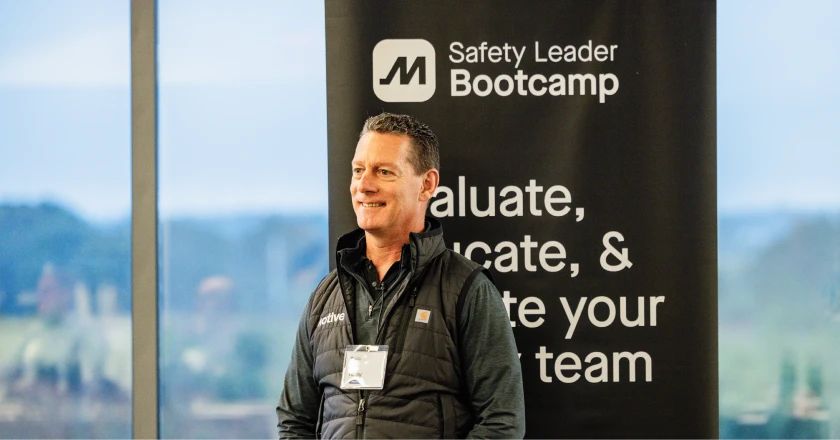For decades, the trucking industry and federal regulators have worked together to balance public safety with business growth. Recently, however, massive “nuclear verdicts” have shifted that balance, rewarding some attorneys while placing heavy burdens on companies.
One recent example is a St. Louis jury’s decision on September 5, awarding a staggering $462 million in a case against Wabash National. Of that, $450 million accounted for punitive damages, tied to claims that Wabash should have designed a stronger rear impact guard more than 20 years ago.
Plaintiffs’ argument: A message to commercial fleets
Plaintiffs’ attorneys argue that only large jury verdicts can send a strong message to commercial fleets, pushing them to prevent future accidents. In this case, Wabash, a leading trailer manufacturer, was accused of failing to exceed government standards for rear underride bumpers. This verdict is yet another sign that plaintiffs are using aggressive legal tactics like the “reptile theory” to target not just trucking companies, but manufacturers of the equipment they use.
The 2019 crash: Tragedy on the highway
The case stemmed from a tragic 2019 crash in which an intoxicated driver in a Volkswagen slammed into the back of a Wabash trailer. The truck had slowed due to construction, and the Volkswagen went under the trailer, killing both the driver and the passenger, neither of whom were wearing seatbelts.
The jury found that Wabash could have designed a stronger underride guard, exceeding federal requirements, but chose not to. Wabash countered that their trailer met and even surpassed the standards of its time, and that no underride guard — no matter how strong — would have saved the two men given the speed of the crash.
The trailer involved was built in 2005 and complied with federal standards set in 1999, which required underride bumpers to withstand impacts up to 30 mph. The plaintiffs’ attorneys argued that these standards were inadequate, claiming that the new standards, finalized in 2022 and requiring protection up to 35 mph, still fall short. They contended that Wabash should have equipped its trailers with bumpers capable of withstanding impacts between 45 and 55 mph.
The “Reptile Theory” legal strategy
In court, the plaintiffs used the “reptile theory” legal approach, accusing Wabash of participating in an “unlawful conspiracy to knowingly produce dangerous products” when better safety technology existed. They alleged this conspiracy dated back to the 1960s, long before Wabash was founded in 1985. Attorney John Simon argued that Wabash showed “reckless disregard for human life” by not installing stronger underride bumpers, as reported by David Siegel from the Courtroom View Network.
To many, this case illustrates how companies can be held liable for accidents even when they’ve adhered to federal standards. These regulations, developed through a rigorous process that includes public feedback, should protect businesses from such lawsuits. But in practice, plaintiffs can bypass these standards by convincing juries that the government regulations aren’t enough, and that companies knowingly fell short.
When the federal government creates rules, it’s bound by the Administrative Procedures Act (APA). According to the U.S. General Services Administration, the APA “ensures public transparency in the rulemaking process, while holding government accountable to address public input.”
This transparency and accountability ensures integrity throughout the process. In my experience, the process often takes years. In fact, the latest rear underride rule took seven years to finalize.
The challenge of inconsistent verdicts
What’s frustrating to many is that even after seven years of wrangling, there’s still no standard on which we can rely. That’s because plaintiffs are alloed to circumvent this process and take the mater to a friendly jury of citizens who may have no relevant expertise. There, they’ll argue that government standards aren’t enough and that the defendant knew it, failing to take precautions.
This process can repeat itself state-by-state, county-by-county, jurisdiction-by-jurisdiction. Each could return a different decision, and none will provide us with a standard that American businesses can rely on.
Over the last 246 years, we’ve pragmatically built a government with multiple checks and balances. One that listens to its citizens when crafting rules and provides opportunities for appeal and objection. That’s part of the reason many people complain that our government works too slowly.
If we don’t like the decisions it makes, we always have the opportunity to petition it for change (thanks to the APA). It’s a beautiful process, however slow. Unfortunately, Wabash is the latest example of an attempt to short-circuit that process and ask a few people to hold a company accountable for following a well–established standard.
Where we go from here will require thoughtful discussion and careful consideration of how we balance safety, fairness, and the rule of law.
Curious about how to defend your business against nuclear verdicts like this? Check out our comprehensive guide, where the experts at Sentry Insurance show how to go about it.
P. Sean Garney is co-director of Scopelitis Transportation Consulting, a Motive contractor.




